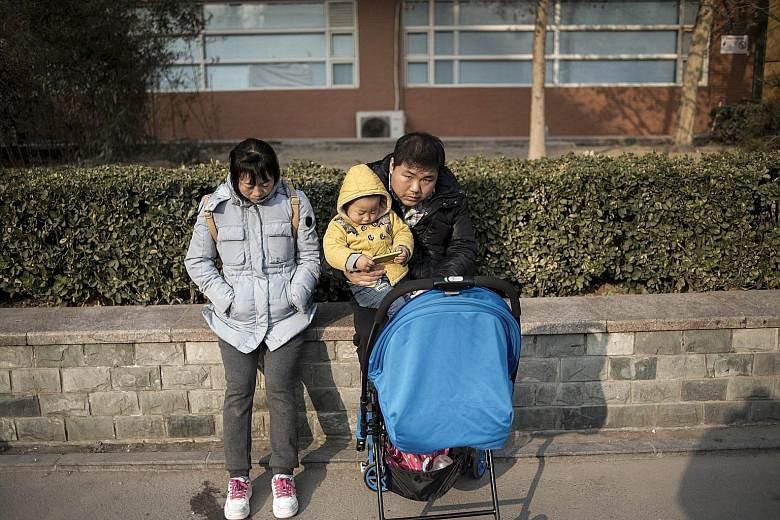BEIJING • China will stick to its family planning restrictions for up to 30 years, a senior official said yesterday, rejecting concern that limits on the number of children had shrunk the pool of workers needed to support an ageing population.
Last year, the ruling Chinese Communist Party announced it would relax its longstanding "one-child policy", allowing all couples to have two children. But critics say the change comes too late to avert a dangerous population imbalance.
However, Mr Wang Pei'an, Vice-Minister of the National Health and Family Planning Commission (NHFPC), said officials would adhere to family-planning restrictions "for the long term".
"This long-term adherence is at least 20 years, 30 years. After a period of time, along with demographic changes, and along with changes in the population's socio-economic development situation, we will adopt a different population policy."
He said it was hard to say how long exactly the restrictions would be maintained, adding that it was an issue that had to be dealt with "in line with the times".
Mr Wang said an ageing population was a global problem, "an inevitable trend of a society's development", and that China's main problem with its labour force was not the number of workers but "how to improve the quality of workers".
With the two-child policy, the labour force could rise by more than 30 million by 2050 and the ageing population will be reduced by 2 percentage points by 2030, he said.
And as the policy kicks in, China will improve its maternal and child healthcare and household registration, adopting measures to better allocate resources and train more doctors.
"The new policy has increased the likelihood of later-age pregnancies... Therefore, we need better maternal and child health services."
The government wants schools to train more midwives and paediatricians, and is calling for higher salaries to make these occupations more appealing, said the NHFPC.
REUTERS, XINHUA

